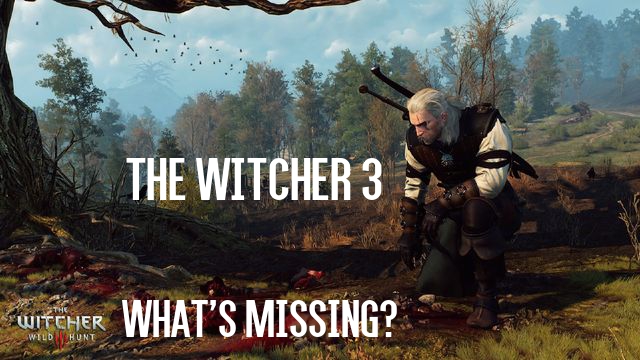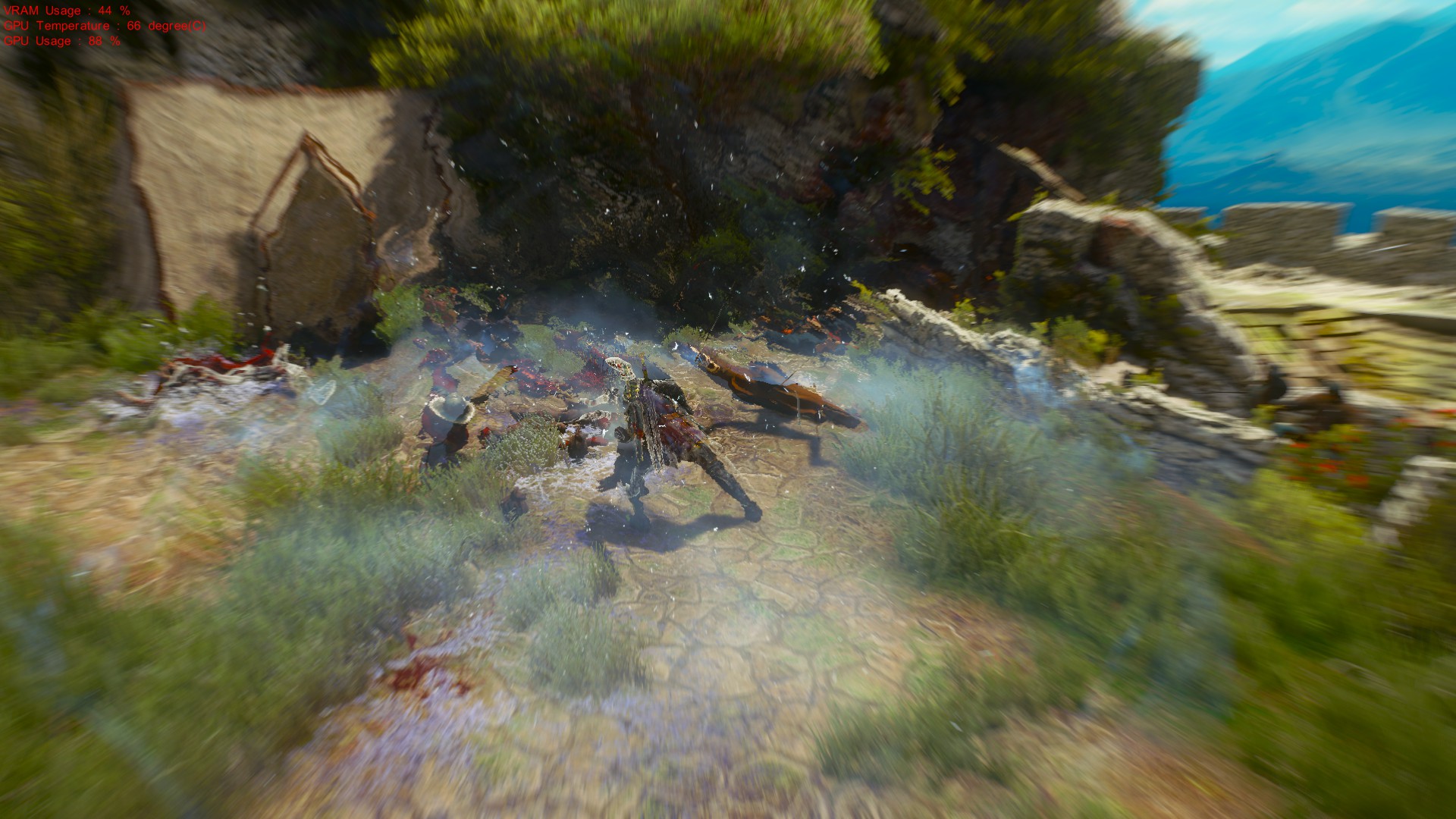The somewhat recent addition of Blood and Wine to the already huge world of The Witcher 3: Wild Hunt was the icing on the cake, (Or gateau, as we say in Toussaint) for fans, and something I looked forward to reaching as I concluded Hearts of Stone. And within the (once again) excellently delivered story, we’re spoilt to some new gameplay elements too; most notably the quest to unlock additional mutations which can render Geralt a godly death-dealer, if set up correctly with your character build.
Therein lies the issue, though — reaching god-status in a game gets old quickly. The moment you stop caring about how you approach a situation, is the moment you begin to lose investment.
Above: Ice-augmented Aard Sign delivering cold, shatter-y death.
I should mention that I began the game on “Blood and Broken Bones!” difficulty. I enjoy a challenge, that in turn demands I pursue better gear, skill sets, and potions. By the time I reached Toussaint, I had cranked this up to “Death March!”. It was after I began to unlock some of these aforementioned mutations, (Piercing Cold stands out, aftermath pictured above) that I began to wonder what combat scenarios might make use of these new-found strengths.
There’s certainly some interesting party tricks and buffs, between the new mutations and Grandmaster gear now available. And there are a couple of tricky new enemies hiding in Toussaint, but for the most part these additions were merely speeding up the rate I could cleanse an area of monster/bandit scrubs. I could manage without, if I had to.

“A one shot? Just like that? Sigh. What is life.”
What then came to mind was the Arena mode from The Witcher 2, amongst other games, which has you fighting progressively tougher enemies, with breaks in between rounds to upgrade, or even hire help for the next bout. A nice idea, despite Witcher 2′s inferior combat.
Cut back to Blood and Wine, and we have an Arena, which the local Knights take part in for fame and glory. However, this is only used on two occasions I experienced, for some one-off quest battles. This felt like a missed opportunity.

Above: A battle arena archaeologists date to the late 20th Century.
So what’s my point?
Wild Hunt has the best combat in the series, and arguably one of the best combat systems in an open-world game. Once I had a set of Grandmaster gear under my belt and equipped a preferable mutation, I found there was nothing to really throw my weight at in Blood and Wine, minus a certain final story boss.
An organic way to sate such combat enthusiasts, may have been to feature taking part in Beauclair’s Arena more regularly, merely for gold, rewards, or who knows what else (It is The Witcher, after all…)
“You’re all clothed, will this change if I win?”
Perhaps a rotating bounty board that pits you against tough combinations of monsters, demanding you bring your best or prepare for the worst. Or an endurance mode, forcing you to take more thought on potion usage, being unable to meditate and re-stock until you lose or retire. In short, some kind of late-game challenge that tests your new toys to the limit. The interesting skill progression and choices of play style owes itself to having some content of this sort.
Some might say I’m missing the point, that it’s primarily a story game. But we have to observe that same story is about a monster hunter, with two swords and magic spells. And it’s obvious that great effort went into both character and armor upgrades, as well as gameplay in general.
Despite what seems to me like a slight missing link at the top of the chain, there’s no denying Wild Hunt and this final expansion still live up to the hype.









Published: Jul 24, 2016 08:52 pm